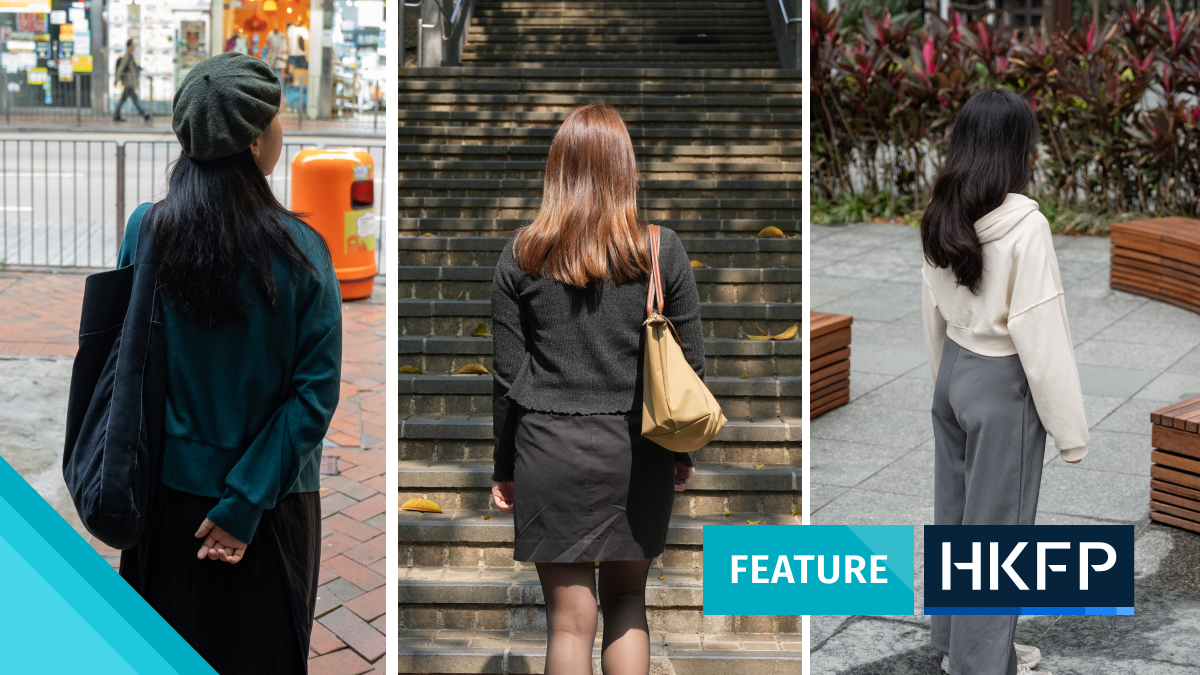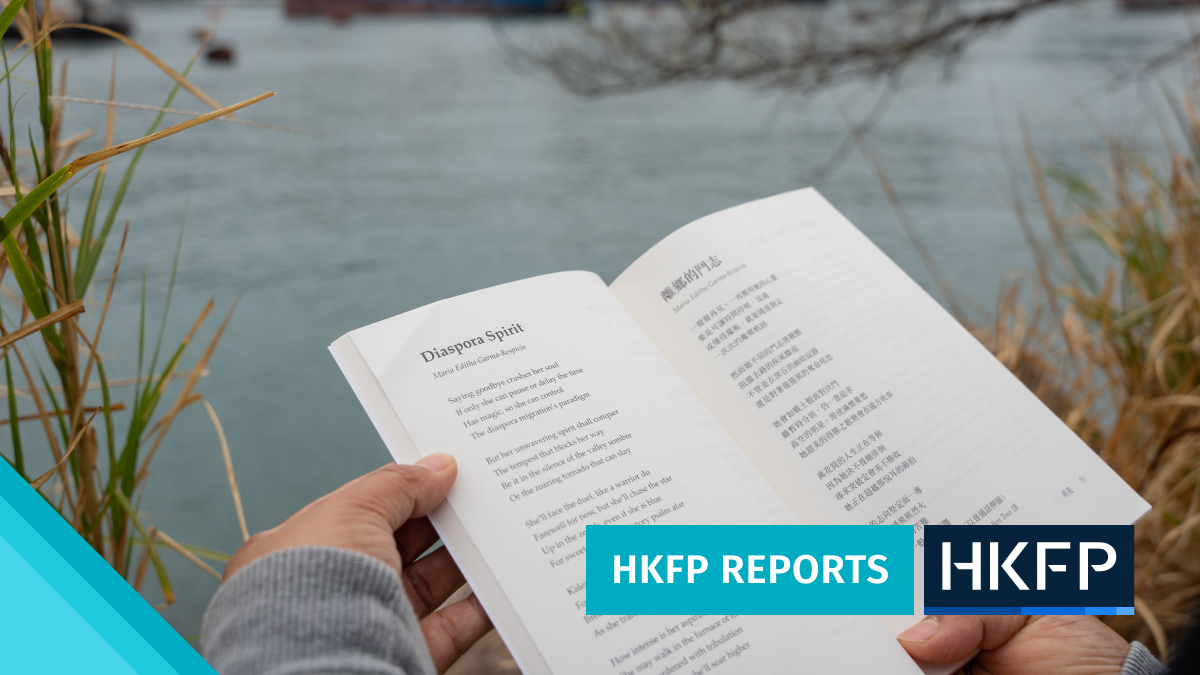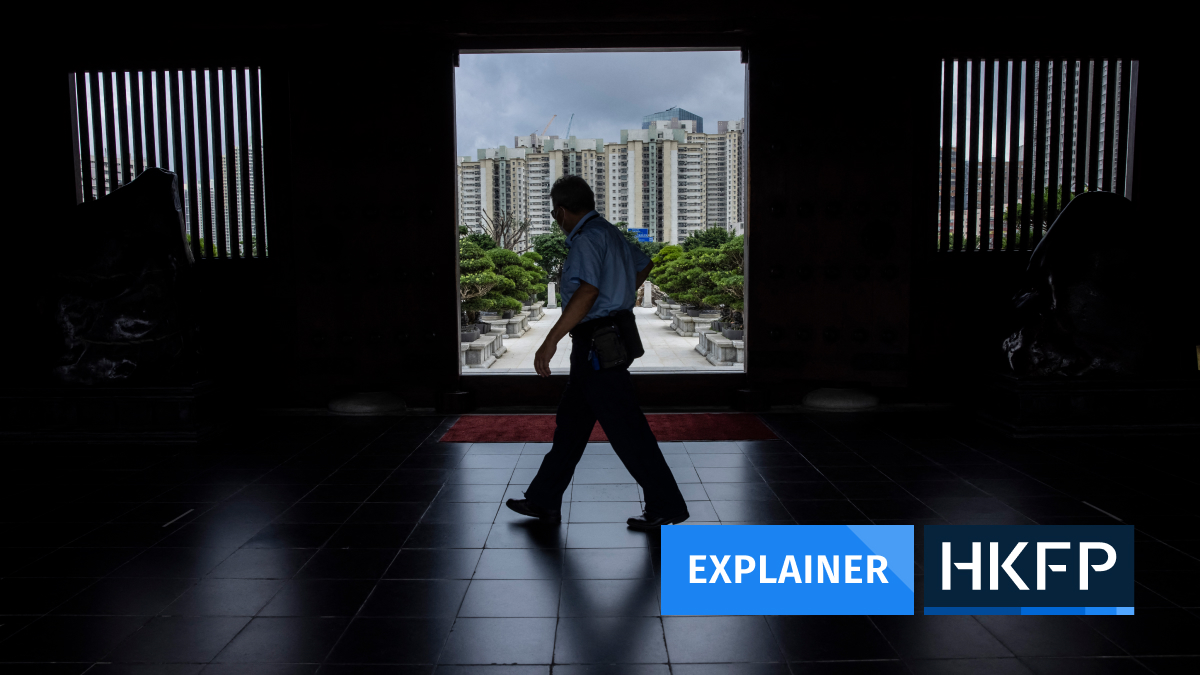Mental health in Hong Kong was forced front of mind last June after two women were fatally stabbed in a shopping mall in an apparently random attack. Reports that the suspect had been diagnosed with a serious mental health condition were quick to emerge, sparking discussions rife with often alarmist inaccuracies.

Carol Liang, deputy CEO of mental health charity Mind HK, was among those trying to fight the false assumptions.
“When that happened… I immediately had to write a response; ‘not everyone with a mental health condition will be violent.’ That is the main message that I wanted to get across, that actually the majority of people with a mental health problem are not violent at all, they’re more likely to be the ones… on the other end of it,” Liang told HKFP’s podcast Yum Cha.

Chankalun – A Bright Future for Hong Kong's Neon Heritage – HKFP Yum Cha
- Chankalun – A Bright Future for Hong Kong's Neon Heritage
- Carol Liang – Happy Hong Kong?
- Astrid Andersson – Wildlife Trade and Alien Invaders
- Xyza Cruz Bacani – Migrant Domestic Workers and the Children Left Behind
- Cynthia Cheng and Maxime Vanhollebeke – An Invisible Web of Workers
- Vaudine England – A City Between East and West
- Regina Ip – Matters of Security
- Emily Lau – Fighting Two Tigers
Apple | Spotify | Google Podcasts | Stitcher | Overcast | Amazon Music | Pandora | RSS
Combating the stigma surrounding mental health is central to Liang’s role at Mind HK. She has been with the organisation since its genesis in 2017, and has noticed a change in awareness of mental health over the years.
Events such as the double mall murder have, Liang said, “quite a big impact in the way that perceive mental health.”
“In some sense it was positive in that it created an urgency to do something about this… [to implement] structural changes,” Liang said.

The Covid-19 pandemic, too, “really brought mental health as a topic of concern,” she added, saying that because everybody was “experiencing the same problem,” they felt more comfortable discussing how they were feeling.
“In a way, it helped normalise the conversation a bit,” Liang said.
However, just because people were talking about mental health it did not mean they were becoming more accepting of it, according to studies conducted by Mind HK.
“What we found from our recent research in June is that there’s been a huge interest in mental health… but the interesting part was that stigma didn’t really improve… it got worse,” Liang said.
She cited what she called “concerning statistics,” saying that “58 per cent of people in our study said that they would stop being friends with someone if they had a mental health condition, and 38 per cent said that that they would not be willing to work with someone [with a mental health condition].”
Such stigma also impacted Hongkongers’ relationship with their own well-being, Liang said. “Our research found that about 60, 62 per cent of people who have a diagnosable mental health condition don’t disclose it to anybody… not their husband, their wife, their friend, their partner, their colleague,” she said.
“People really do experience this in isolation, and I think that a problem is that people are not accessing help because of the stigma and how strong it is here.”
Those who do seek help are sometimes unsure who to turn to. Some see their family doctor, while others go straight to a psychiatrist. “That, generally, is something we’re looking to change… sometimes you do need to go see a psychiatrist, but not everyone,” Liang said.
Access to mental health professionals was an issue, too, with public psychiatry services in such high demand that appointments last around five minutes and private mental health care often prohibitively expensive.
Mind HK has sought to “provide a layer within the system” by training what it calls “well-being practitioners.”
“Really, they’re there to provide support to individuals experiencing mild to moderate mental health conditions, mostly anxiety and depression, because they are the most common,” Liang said.
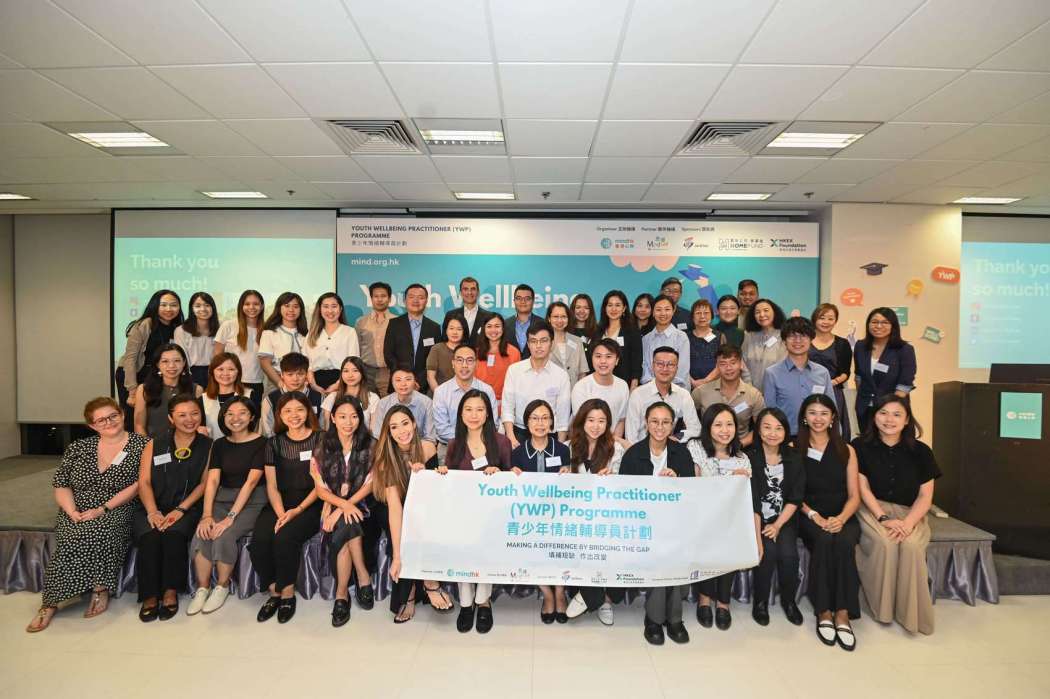
Following the stabbings in June, the government consulted its mental health advisory board and put forward “enhanced measures” to improve mental health support in the city. Months later, when Chief Executive John Lee delivered the second Policy Address of his tenure, these suggestions were included in it.
Time will tell whether that showed a shift in the official approach to managing mental health in the city, but Liang said it was “promising” that the issue had been acknowledged in October’s Policy Address, even if very little of it was new. From 2019 until 2022, mental health was not mentioned at all by the city’s leader in setting out the administrative vision for the year ahead.
Among the suggestions mentioned by Lee was a mental health literacy resource kit for school students, which Liang said “makes a lot of sense.”
“We’ve seen that one of the main areas of concern in Hong Kong is the mental health of not only the elderly, which is a very vulnerable group, but also the youth,” Liang said. “We have these suicide rates that are rising, young people had a really difficult time during Covid, they were probably the most impacted, so I think it’s right that there needs to be better mental health literacy within school… and not only kids but parents and teachers.”
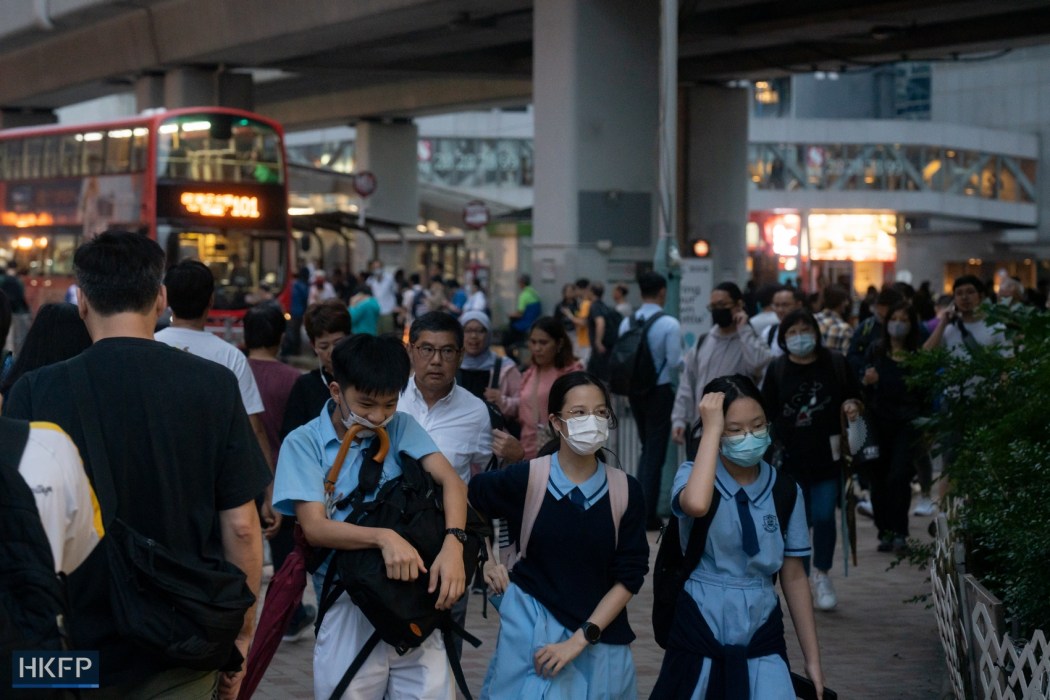
Friends, too, can play a role. “Studies always show, especially among youth, the first person a person goes to when they are experiencing symptoms, they don’t want it to be a professional, they want it to be a peer,” Liang said, adding that it was “really important to normalise [mental health] and have those conversations, because what can be detrimental to a person is when they suffer alone.”
“We all have mental health… it’s a spectrum that we all go up and down on… throughout our lives… arguably, there is no such thing as physical or mental health – it’s just health.”
| 💡If you are in need of support, please call: The Samaritans 2896 0000 (24-hour, multilingual), Suicide Prevention Centre 2382 0000 or the government mental health hotline on 18111. The Hong Kong Society of Counselling and Psychology provides a WhatsApp hotline in English and Chinese: 6218 1084. See also: HKFP’s comprehensive guide to mental health services in Hong Kong. |
HKFP Yum Cha
The final episode of the first season of HKFP Yum Cha – which features a diverse range of voices, from artists to scientists, who share their perspective on Hong Kong as it is today – will be released next Saturday.
Listen and subscribe wherever you get your podcasts.
Support HKFP | Policies & Ethics | Error/typo? | Contact Us | Newsletter | Transparency & Annual Report | Apps
Help safeguard press freedom & keep HKFP free for all readers by supporting our team

Original reporting on HKFP is backed by our monthly contributors.
Almost 1,000 HKFP Patrons made this coverage possible. Each contributes an average of HK$200/month to support our award-winning original reporting, keeping the city’s only independent English-language outlet free-to-access for all. Three reasons to join us:
- 🔎 Transparent & efficient: As a non-profit, we are externally audited each year, publishing our income/outgoings annually, as the city’s most transparent news outlet.
- 🔒 Accurate & accountable: Our reporting is governed by a strict Ethics Code. We are 100% independent, and not answerable to any tycoon, mainland owners or shareholders. Check out our latest Annual Report, and help support press freedom.
- 💰 It’s fast, secure & easy: We accept most payment methods – cancel anytime, and receive a free tote bag and pen if you contribute HK$150/month or more.
MORE Original Reporting
HKFP has an impartial stance, transparent funding, and balanced coverage guided by an Ethics Code and Corrections Policy.
Support press freedom & help us surpass 1,000 monthly Patrons: 100% independent, governed by an ethics code & not-for-profit.





